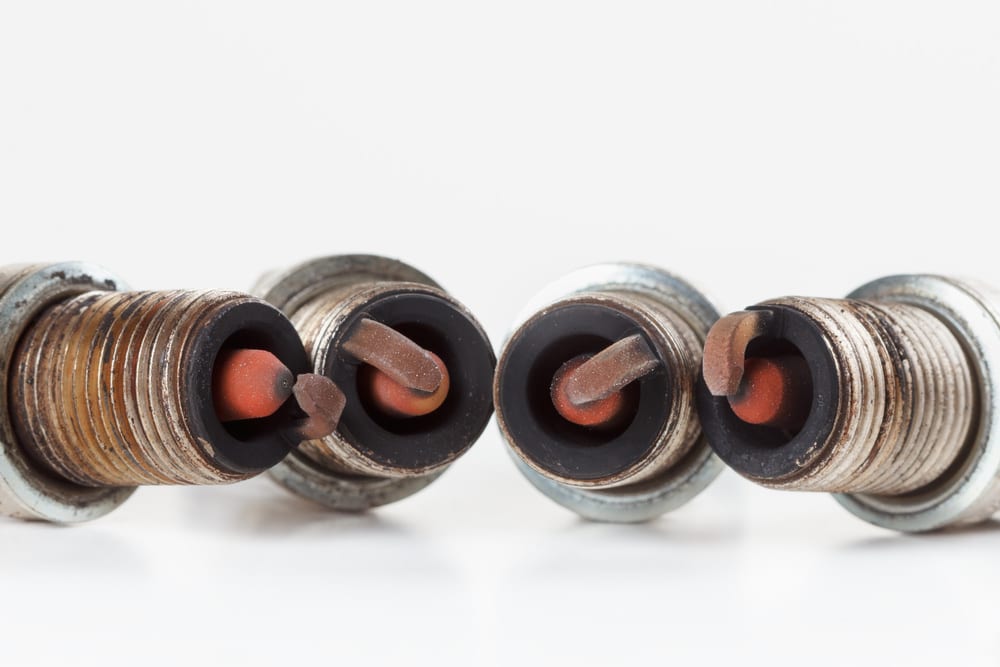

While your engine runs on gasoline, it also requires electricity. It’s needed to operate most of your accessories, but is also required to make the engine run. Spark plugs connect to wires that lead to the ignition system. Electricity is created by the alternator and sent to the plugs, which create arcs of electricity. This is what ignites the fuel in your engine’s cylinders, creating the combustion that pushes the pistons down and actually turns the engine. Spark plugs are vital parts of your car.
Spark plug wear
Like most other components of your engine, spark plugs wear down over time. The primary type of wear here is with the electrode. If you look at a spark plug, you’ll notice one end is narrow and tapered – this is where the wire connects to it. The other end is bulbous, with a small metal rod coming out of the center, and a metal hook to one side. That center rod is the electrode – electricity arcs from that to the hook.
Through normal use, the electrode on each spark plug does wear down. Eventually, it becomes so worn that it doesn’t create as much (or any) electric arc, which has a direct and immediate effect on your engine operation.
When to replace spark plugs
If you check your owner’s manual, you’ll probably find that your automaker recommends you replace your spark plugs roughly every 30,000 miles. That’s fine if you’re using stock spark plugs. However, the actual timing of replacement will vary depending on other factors.
High Performance: If you have high performance spark plugs, it’s possible that you will need to replace them more often, as the electrode can wear down faster.
Long Life: Some spark plugs are made to have a longer life. Their electrodes do not wear down as quickly, meaning that you won’t need to replace them as frequently. Look for plugs made from iridium or platinum for the longest life (copper has the shortest lifespan – generally about 20,000 miles).
Oil Leaks: When you pull a spark plug out of the engine, the base should be relatively clean. If there is oil present, it means there’s a leak. Not only does that mean you’ll need to replace a blown seal, but it means your spark plugs will need to be changed more frequently because of contamination.
High Revs: If you regularly “put your car through its paces,” you’ll put additional wear and tear on your spark plugs, meaning that you’ll need to replace them more often. Drivers with a lighter foot will enjoy longer life from their plugs.
If your engine seems to be running rough, or skipping, chances are good that it’s time to have your plugs replaced. Other symptoms can include rough idling and stalling.



